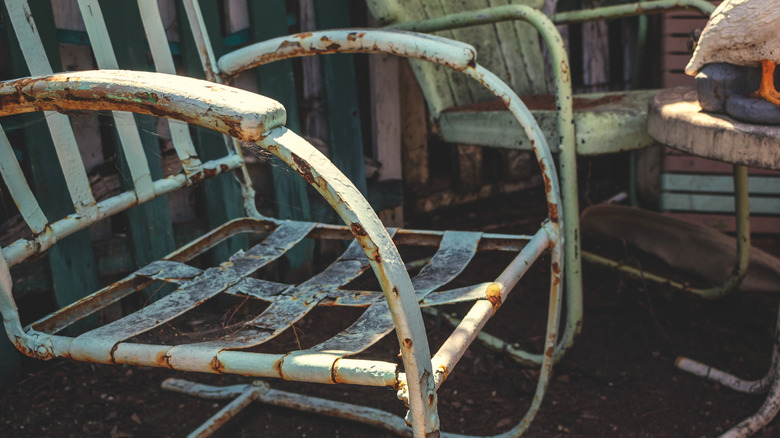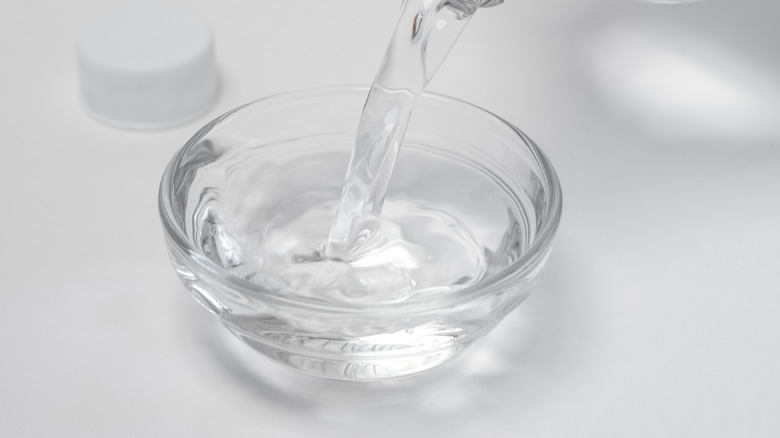Bring Shine Back To Rusted Patio Furniture With An All-Natural Household Staple
Wintertime in North America brings with it a greater abundance of rain and snow, though inclement weather isn't exclusive to this season. The lower 48 states collectively receive enough rain every year to cover each of them in 30 inches according to the U.S. Geological Survey. While you can pretty easily get away from the downpour by stepping inside for some TikTok-inspired hot chocolate, it's much harder for your outdoor furniture to escape — especially if rain hits suddenly, unpredicted by your local weather report. If you have any pieces built with exposed iron, they could begin to rust almost immediately. Luckily, odds are good you keep a natural de-ruster in your kitchen cabinet: vinegar.
Rusting is a very common chemical reaction; visible rust is actually the formation of iron oxide that occurs when iron or ferrous steel is exposed to carbon dioxide-infused water (or acid rain, or water melted by road salts) and begins to corrode, giving up electrons that are then replaced by oxygen bonds. You don't have to know the chemistry to understand how this affects you: your furniture not only looks dirtier, but it's structurally weaker and may be prone to breakage. Putting covers over your wrought iron furniture may not even be enough to save it, as lingering ambient moisture can still oxidize the metal. Utilizing vinegar can help — so break out the household staple and get started.
How to clean your rusty patio furniture with vinegar, and keep it safe outdoors
Distilled white vinegar is full of acetic acid, which can be combined with equal parts water (and some lemon juice if you prefer less smell) to form an all-purpose cleaner that breaks down rust in just a few minutes. Once the rust is weakened, you can carefully brush it with steel wool, a wire brush, or even a brush attachment for your electric drill. If you need more, you can use medium-grade sandpaper to reach bare metal or for tucked-away sections, try using a rust remover like naval jelly.
Treat the vinegar-cleaned surface of your patio furniture with paint thinner and rust-resistant primer before applying new paint colors. Paint protects the bare metal from contact with water and oxygen, as can a layer of water-repellent oils. But there are any number of elements that might affect how quickly things rust. Thinner sheets of iron rust more readily, and any sources of heat will speed up chemical reactions.
It's worth noting that while vinegar is a gentle cleaning agent, this means it is a poor disinfectant. Rust found on sharp objects like nails isn't the source of tetanus as common parlance suggests; rather, rusted items tend to also be dirty with soil that carries the tetanus bacteria. Once your outdoor patio furniture is cleaned to a shine, give it a proper run of disinfectants to make sure you and your loved ones can lounge safely once the rain goes away. And next time you're buying patio furniture, also consider a set made from naturally oily and water-repellent materials like teak wood.

